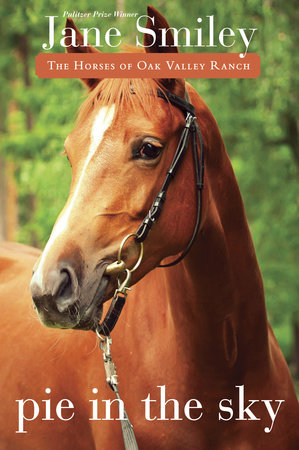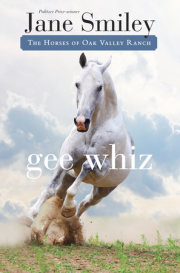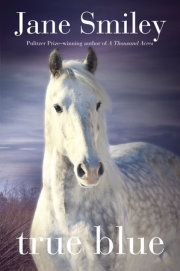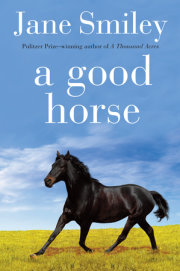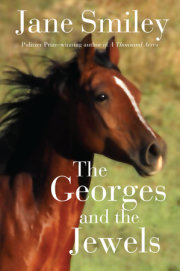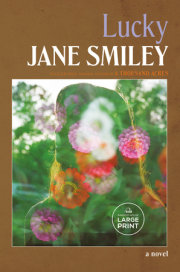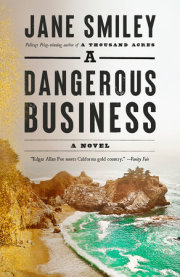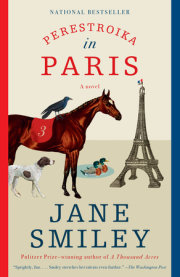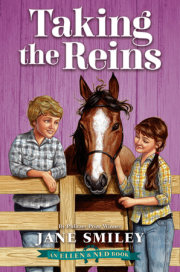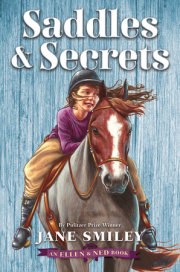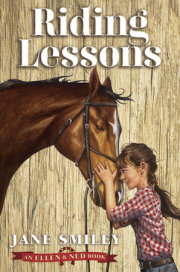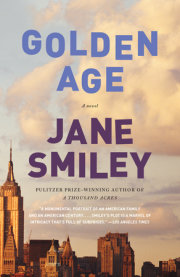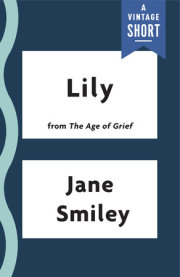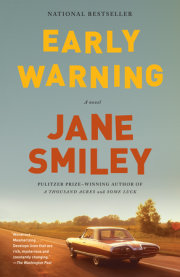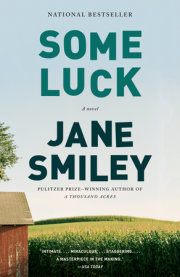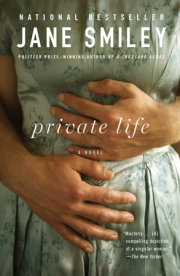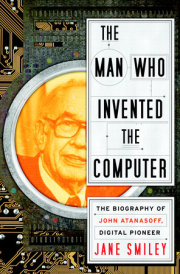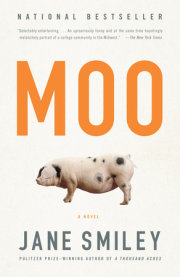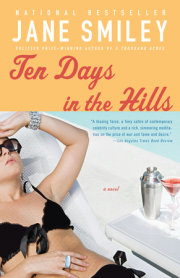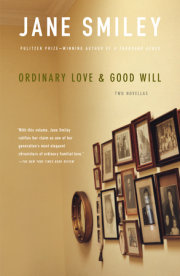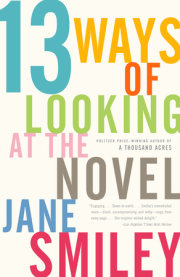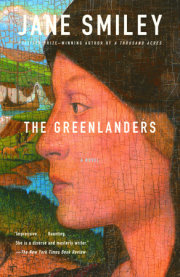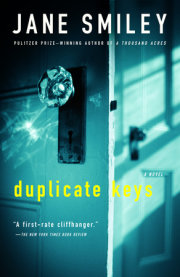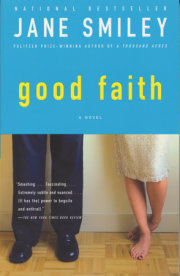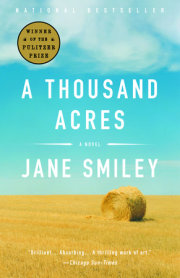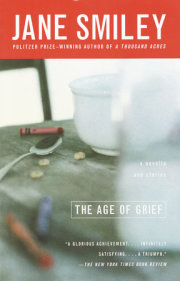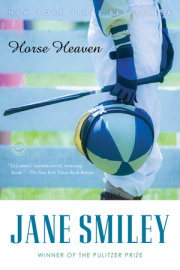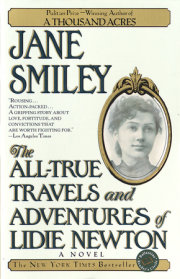Chapter 1
All summer long, Mom and Dad talked about the temperature. I would have thought that since they'd been living in California now for nine years, they would have gotten used to the weather, but no. It wasn't that they complained; it was that they were always amazed. Now it was fifty, now it was seventy, now it was a hundred, and all in the space of one day. In Oklahoma in the summer, it was always a hundred. That's what they said.
No matter how hot it was at our place (and yesterday it was a hundred), I knew to take a sweater when I went to the coast to teach Melinda Anniston and Ellen Leinsdorf, which I did every Saturday, even though my broken arm was healed and I had plenty of horses to ride. There were several reasons to go--Dad liked the income and experience for me, Mom liked the chance to do her shopping, and I liked both the girls and also their pony, Gallant Man, a pony that we had owned and sold to Melinda when her family had plenty of money, but that Ellen was now leasing half-time while the Annistons continued to fight about their divorce. This, Mom said, could take years. I also liked seeing Jane Slater, who always had something up her sleeve. Jane was neat and tidy every day, perfectly groomed and usually with a serious look on her face, but underneath that exterior was a person who liked to try things, and also liked me to try things, so when she came up to me after Ellen said good-bye and the groom, Rodney Lemon, took Gallant Man away to give him a bath, I knew she had a plan.
She said, "Oh, Abby, time to put in our entry blanks for the show next week."
"I thought we had to do that last week."
"Well, it is our show, so I reserve for myself the privilege of being a little late. Anyway, I've put both Ellen and Melinda in two classes. Melinda is in the two-foot pony hunters, one over fences and one on the flat, which I think she can do in one day without fainting from anxiety, and Ellen is in two walk-trot equitation classes, one on the flat and one over fences, but the fences are just cavalletti poles, hardly nine inches off the ground, just to teach the kids how to steer around a course."
"She could do more."
"But her mother couldn't stand it, so I think if her mother sees her do this, she'll be reassured and we can move forward at a brisker pace." She meant let Ellen do what she wanted to do, which was jump jump jump.
Jane looked me up and down. "Have you bought your boots yet?"
I nodded. Mom had finally given me permission to use some of the money I'd earned to buy a pair of black show boots, all the way to my knees, beautiful, soft, and gleaming, but she had made me buy them a size too large, in case I was still growing. I said, "I've been breaking them in for ten days."
"How do they feel?"
"Better. I can get my heels down now. Before, they were too stiff."
Jane nodded, then said, "I know you wanted them for a long time, and I always think they are the perfect example of a certain thing."
"What's that?"
"That getting what you want can be a little bit of a burden."
"I've already soaped them four times."
"There you go."
"But they look great."
She hugged me.
As we walked toward the parking lot, she said, "There's another thing."
"What's that?"
"Well, I talked Peter Finneran, the judge for the show, into staying an extra four days and giving a clinic after the show is over, and I want you to ride in it."
"What's a clinic?"
"That's when a famous equestrian gives three days of costly group lessons to those who sign up. It's very intensive, and you can learn a lot. Your trainers, who know you, might be overlooking things they ought to be seeing. The clinician picks them up. Peter Finneran is absolutely the most famous rider in the East now. Since we have him in California for a week, we need to keep him here and try to get some wisdom out of him. I already have trainers calling me from LA and San Francisco to sign up. I want you in there."
"On Blue?"
"Yes, you can take Blue."
"He's not jumping over three feet."
"That's fine for the first day anyway."
"How much is it?"
"I'll discuss that with your dad. I'll call him." We stopped. I could see Mom's car at the gate. Jane said, "Anyway, I put your name on Melinda's and Ellen's entry blanks as their trainer. You'll get paid for that," and she patted me on the shoulder and walked away, waving to Mom. I didn't know what to think, but then I never knew what to think when Jane came up with an idea.
Mom leaned over and gave me a peck on the cheek when I got into the car. "Here. I bought you an egg salad sandwich at the sandwich place beside the store. I know you have a lot to do this afternoon. It's downright chilly here and it was only seventy-four in town. I'm pretty sure it's cooled off at home." She handed me the sandwich. And a sugar cookie. And a bottle of Coke. She even had an opener to pop off the cap. We didn't have Cokes very often.
The first thing Mom did when we got home was check the temperature. She exclaimed, "Seventy-six! I thought so!" and went into the house after patting our dog, Rusty, on the head. She slammed the door, and Rusty lay down on the porch and rolled over. I suppose she knew Mom was watching, because Mom then opened the door with a laugh and gave Rusty a dog biscuit.
You couldn't tell anymore that I had broken my arm almost five months earlier, falling off Danny's horse before she was Danny's horse--Happy, or Happily Ever After, which was her show name. Danny had just won two reining classes on her at the local rodeo. It was like they were welded together--whatever move she made, he was right with her. They hadn't gone in any roping classes, but I had seen Happy watching the calves. I imagined her slipping away and trotting over to where they were, saying, "Excuse me, excuse me. I have business over here. These calves need me."
My arm didn't hurt, and the bump that had been there when they took the cast off was gone. I had also built the muscles back up and both of my forearms looked the same now--a little brown and a little muscly. I made sure to work the left arm, the broken one, just a little more than the right one--to carry my books on the left, to open doors with the left, to carry my saddle on the left. Thinking about it reminded me to do the same for the horses--always work the weak side a little more than the strong side.
We had seven horses now. Amazon, Foxy, Jefferson, Sprinkles, and Happy had moved on, leaving Lincoln, Jack, and Blue. In June, Uncle Luke had brought us a full load, four mares: Lady, Morning Glory, Nobby, and Oh My. Oh My was a beautiful overo paint, black and white with one blue eye and a question mark on her shoulder. When people saw her, they said, "Oh my!" Daddy didn't expect to have her long. Nobby was a dark bay--Daddy thought she had some Tennessee Walker in her by the way she was built. She was very comfortable, even though Daddy hadn't asked her to "walk" yet. He rode her out because she was good at covering ground and very surefooted; "Couldn't resist" was all he said about her. Morning Glory was another pony ("Californians just love ponies!" he said), and I could ride her, but only just, and I hoped Daddy would sell her soon and then admit to himself that I was growing up. Lady was a lady--a bay quarter horse mare with a star shaped like a rectangle and the cowlick smack in the middle (you could measure it). She would make a good ranch horse, parade horse, whatever. In the old days, horses like Lady were the only ones Daddy really wanted to buy, because they were the most useful and easiest to sell, but after Black George and Gallant Man and Foxy, he had realized that Californians were different from Oklahomans--the stranger a horse was, the more they liked him or her. That afternoon, I was to ride Blue, Oh My, and Nobby, and also to work Jack in the pen. My real plan, since Daddy was in town and it was only seventy-six degrees, was to let Jack play around in the arena while I rode Blue.
I went straight to the barn, grabbed my saddle and Blue's bridle, took them over to the arena, and hung them on the fence. Blue worked in the arena four or five days a week--even though he had been afraid there when we first got him, he now was perfectly at home, and never flicked an ear at the cones or the poles lying along the fence line or the sawcow in the middle. Rusty could slip under the fence and run right in front of him and he didn't even sidestep.
First I got Jack--put on the halter and lead rope and made him walk along properly, about a foot behind my shoulder on my right side, with the rope loose between us. Every couple of steps I stopped suddenly, and he was supposed to pay attention and stop, too. Once I sped up to a fast walk, and he kept pace with me but didn't get excited or get ahead. He was eighteen months old now and knew to keep his eye on me and mind his manners. Most of the time he did what he was supposed to do, but not always. Daddy said he was "full of himself"; Jem Jarrow, our trainer, said he was "a character"; and Danny said he was "a real little man." I just thought he was a thing of beauty. I opened the gate and led him in, turned him, got him to make eye contact with me, then took off the halter. He paused for about one second and then leapt into the air with a squeal. I went back for Blue.
Blue was seven years old, a grown-up horse, but also, I was sure, a Thoroughbred. I myself had bought him on the spur of the moment from Jane after his previous owner died in a car accident. No one knew anything about him or about his previous owner, and for a while that had made me really nervous. He did not have a tattoo under his upper lip, which would show that he had raced, but he had the Thoroughbred look--elegant slim head, long legs, prominent withers--and he had a beautiful floating canter, wonderful to watch and even more wonderful to ride. Riding his canter put me in sort of a daze. I brought him into the arena, and while Jack sniffed cones and trotted around, I tacked Blue up and got on him. He looked at Jack sometimes, but his attitude seemed to be "Kids will be kids, but I have work to do."
I had him turn right and then left in a figure eight, then around again. I reached for the right rein and had him lift his head to the right and step under, the way I always got my horses to loosen up and relax. He did that easily. Then he did it to the left. I sat a little deep in the saddle, shoulders up, elbows down, and asked him to back up. He tucked his chin and stepped backward, boom boom boom. Then I had him walk along the rail on a loose rein, with his head down and taking long, stretchy steps. Easy as pie. He sighed. He sighed again.
Jack was nosing under the fence for the dead grass and finding a little something--there are plenty of things that people call weeds that horses think taste good. Dad said that this is the way horses get vitamins and other nutrients--from all sorts of plants, not just grass. As usual for Jack, he was also watching; sometimes he watched us, and sometimes he looked over at the mares or Lincoln, and sometimes he looked up the hill. Rusty came out of the barn, and Jack stared at her for a minute; then she ambled over and sat by the gate, licking her paws.
I asked Blue to trot. He responded nicely. We did a serpentine to the end of the arena, four loops and back, four loops, and then two figure eights and an inward spiral. I made him move along but didn't push him too hard. Then I asked for the canter. A relaxed trot always gave me the urge to feel that canter. This time I made myself let him pick his own speed. He did. It was slow but smooth and easy. We went once around, turned left, crossed the center, where he changed leads, and went once around to the right. Jack noticed us and trotted here and there, snorting, but Blue ignored him. Finally, I took a deep breath, and he took this as an invitation to walk. We walked. I have to admit that I was not in the mood to do a lot of work, but Blue was perfect. Mostly I thought about how well he was going to do in the show, and how proud I would be to have him there, and how everyone would admire us.
Once I had brushed off Jack and Blue and put them away, I got on Oh My. Our only job for the day was to walk to the end of the fence line and then head up the hillside toward Mr. Jordan's place. Once we got there, we were to walk along his fence line with the barbed wire to our left. Then we were to turn and come back, keeping the wire to the right. The next exercise was to come down the hill--not straight down but in a long diagonal, then go up again, come down in the opposite diagonal, and then go up again and come straight down, me sitting back and Oh My using her hocks and haunches to steady herself. She was a beautiful horse, but to be useful on a ranch, she had to be able to handle the terrain. We did all of this at the walk. As she got into better condition, we would speed up. Nobby had to do the same thing. It wasn't hard, but I needed to pay attention, and by the time I was finished, I was sweaty and my hair was damp and flat against the top of my head, because Mom always made me wear a hard hat even though Dad and Danny wore straw cowboy hats in the summer, which were much cooler. I had once been allowed to wear a cowboy hat, too, but then Mom met Jane Slater, and that was that--hard hat for me.
Copyright © 2012 by Jane Smiley. All rights reserved. No part of this excerpt may be reproduced or reprinted without permission in writing from the publisher.

